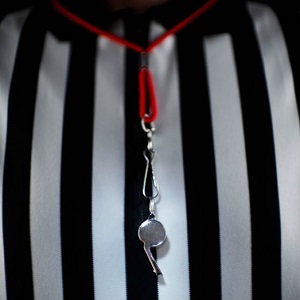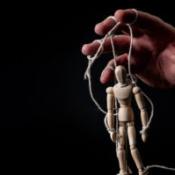 Political turmoil in the Middle East is a complex subject. It’s difficult to look at more than one perspective at a time, much like the blind folks in the room with an elephant, each thinking he or she knows what an elephant is from feeling it, while only describing one part of the elephant—the tail, the trunk, the foot, the ear, the belly.
Political turmoil in the Middle East is a complex subject. It’s difficult to look at more than one perspective at a time, much like the blind folks in the room with an elephant, each thinking he or she knows what an elephant is from feeling it, while only describing one part of the elephant—the tail, the trunk, the foot, the ear, the belly.
Today we are going to look at the lens of authority.
True or false, in the Middle East today, it looks like people are:
- Rebelling against authority
- Joining with authority
- Using their authority well
- Misusing and abusing their authority
- Trying to discover their inner relationship with authority
The answer is 1, 2, 3, and 4 are true, depending upon the people about whom you are talking. Some people are rebelling against the authority in their country as they protest in the streets. Some people are joining with the authority as they fight the protestors in behalf of the authority, either in allegiance, for protection, or for money. Some people, both citizens and heads of state, are working to use their authority well—for example, those who are committed to non-violence, and those who are instituting beneficial reforms.
Others are misusing or abusing their authority—think of those who insist on keeping the status quo in place, are hiring mercenaries to come in and attack the protestors, and those who are being violent, like the citizens who attacked CBS correspondent Lara Logan. And think of those who either are taking a stance of complete denial, or who are truly in total denial.
#5 is most likely not happening, at least not consciously. People may be taking steps toward claiming their own authority—but not with a deeper understanding and consciousness of why and how they react to authority, and why and how they use their own authority. Without doing the deeper explorations, those steps (or any steps we take to make change) in the outer world cannot and will not be sustained.
So how are our relationships with authority created? Actually, it’s one of the earliest experiences we have, before we even have thoughts or words. We respond to the people who take care of us, the authorities in our lives, when we are babies. We respond to how they take care of us. When they are kind and generous, when they are cruel and depriving, and when they are indifferent. In the former case, we might feel authorities are beneficent and idealize them. In the second, we might feel authorities are bad, evil, and demonize them. In the latter, we will feel authorities are indifferent to our plight. Even if there is great love by the authorities caring for us, there are always at least some times when the best parents/authorities have to say “no.” And someplace within us there is a response to them as if they are hostile.
If we idealize the authority at those young, unconscious times in our lives, we may be blinded by those who appear to be loving and kind, or even just charming and smiling (think of what it’s like for a baby to see a smiling or a frowning face). We may want to do whatever we can to help them, serve them, so they will love us and be kind to us. We may be seduced by them, only to find out they were not who they appeared to be at all, and that, now that they have manipulated their way into a position of authority, they are holding onto it with an iron fist. Or they may be doing the best they can, but not being perfect, and not having examined their own relationship with authority, they will act out their own distortions of authority, impacting many around them.
If we demonize the authorities, feeling deep that they are hostile beings, we may rebel against them—refusing to do what they say, making childhood decisions to pit our will against theirs as a way to stay alive and be ourselves. Or we may join with them, reflexively feeling if we are close to them, we’ll be too close for them to lash out at us. Imagine a little boy holding tight to his father’s leg, believing if his father goes to strike him, the father will be hitting his own leg, too. So we may hate the authority, whether we rebel against or join in.
And whether we love the authority or hate the authority, join with it or rebel against it, this will also impact whether or not we want to have authority and how we use it. We may give up our birthright to our authority—to any authority we have, even our own voice. We may want to be just like the authorities in our lives, whether they used their power well or abused it. We may lie in wait, promising ourselves as soon as we have a chance, we will be the authority that others will have to obey. Or we may promise ourselves we will be the authority who will finally use power well.
Most of this we do without any consciousness of how we are affecting our relationship with people in authority or our relationship with our own authority. Then this all drives us from our underground, and we have no idea whatsoever what is interfering with our lives and our relationships.
We each need to explore who the authorities in our early lives were. And what was our emotional reaction to each of them. Where do we react that same way today? And how did those authorities and our reactions affect our standing in our own authority?
As I write in Power Abused, Power Healed:
“Many of us think we know the Divine. Yet, if we can transfer early authorities in our lives onto people, we can also transfer early authorities in our lives onto the Unknown ultimate authority as though it were a divine entity that looked, thought, felt, spoke, or acted like our mother, our father, our minister” (p. 187)
- What does it mean to see the outer authority clearly and without transference?
- What does it mean to stand in our own authority, without contamination by our early experiences and reactions?
- What does it mean to truly use our authority well?
- What does it mean to join together and use our authority in a healthy way and with positive intention?
We cannot really answer these questions without delving deep into our own psyches and souls to discover and work through what emerged from our youngest years. We can’t do that individually. And we certainly can’t do that communally. Not in our country. Not in Egypt. Not in the Middle East. Not in most of our world.
We can only answer these questions and embody healthy authority by doing our own inner work and healing our relationship with authority, down to the root—one by one, each of us having an impact on ourselves, those around us and others, some of whom we may never even meet!

The preceding article was solely written by the author named above. Any views and opinions expressed are not necessarily shared by GoodTherapy.org. Questions or concerns about the preceding article can be directed to the author or posted as a comment below.

 Power Polarities: Ethical Wisdom
Power Polarities: Ethical Wisdom Are You Being Manipulated? Keys to Hidden Aggression
Are You Being Manipulated? Keys to Hidden Aggression How Gendered Language Affects Perceptions
How Gendered Language Affects Perceptions

